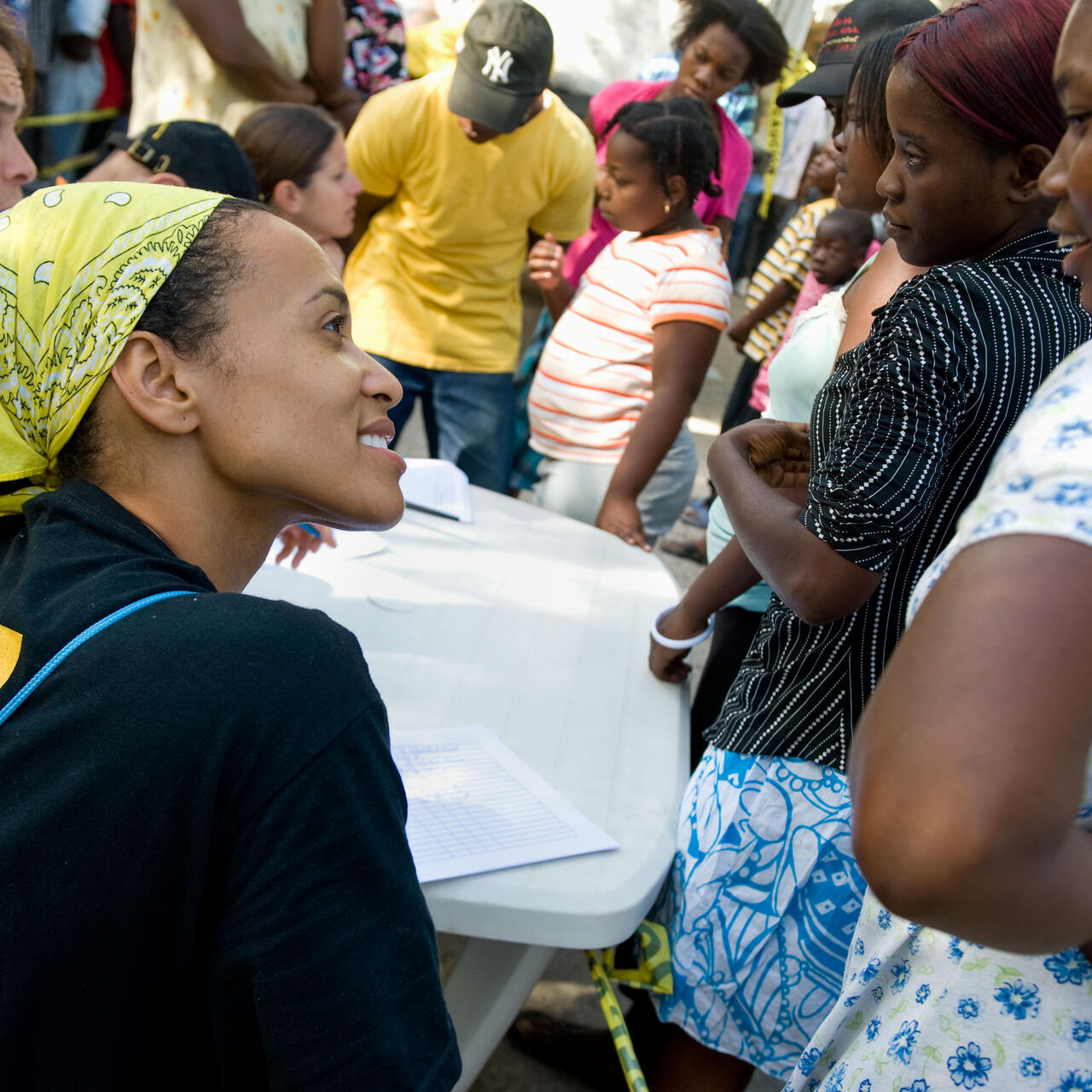
Haiti: political instability, gang violence and disease
Here is why the International Rescue Committee’s Emergency Watchlist ranks Haiti among the top 10 countries most at risk of a worsening humanitarian crisis in 2023.

Here is why the International Rescue Committee’s Emergency Watchlist ranks Haiti among the top 10 countries most at risk of a worsening humanitarian crisis in 2023.
Haiti lands on the IRC’s 2023 Emergency Watchlist top 10 as political instability, gang violence, rising food insecurity and disease outbreaks escalate a humanitarian crisis.
Since the assassination of President Jovenel Moise in 2021, political instability and violence have rocked Haiti. Armed gangs control a majority of the capital city, Port-au-Prince, making it difficult to transport goods and deliver services.
Disease is compounding the crisis. The first cholera outbreak in three years coincides with a shortage of drinking water and the collapse of the country’s health system. Haitians are finding it increasingly difficult to afford food amid soaring inflation. Nearly five million have to skip meals or make other compromises to eat. Aid workers cannot reach or support those in need because of gang violence.
“Fighting against corruption and social issues puts you at risk,” says Frantz*, a refugee from Haiti. “As a journalist, I denounced issues like this and that is the reason why gangs wanted to kill me. One day, after leaving the radio station where I worked, a group of gang members saw me and pointed their guns at me, so I ran… I was lucky I could escape.”

Multiple gangs control much of the capital, Port-au-Prince. Haitians face major threats to their safety: more than 2,000 murders and 1,114 kidnappings were recorded in 2022. Despite efforts from the national police, armed gangs control important roads and fuel terminals around Port-au-Prince, disrupting the flow of goods in the area. Ultimately, urban violence and insecurity have displaced 155,000 people within Haiti.
In March 2023, the number of people experiencing emergency levels of food insecurity grew to 4.9 million - nearly half of the country’s population. Haiti’s food inflation is among the highest in the world, reaching 53% in 2022. Shocks in the global food and fuel markets will likely increase food prices, as Haiti is heavily reliant on food imports.
Cholera cases are expected to increase as Haiti faces its first outbreak in more than three years. The number of suspected cases grew from 1,700 to nearly 34,000 as of February 2023, resulting in almost 2,400 confirmed cases and nearly 600 deaths. Climate shocks, infrastructure damage from the 2021 earthquake and a breakdown in public services have reduced access to drinking water and sanitation, making disease outbreaks more likely. Meanwhile, violence prevents patients from accessing healthcare and medical personnel from providing services.
Nearly half of the Haitian population needs some form of humanitarian assistance. Armed gangs pose a security and logistical risk for humanitarians and other service providers; their fuel blockades prevent hospitals and clinics from delivering services, as many rely on diesel generators.
A lack of humanitarian funding is exacerbating these issues: the international response is 50% short of its goal. “In addition to sufficient funding, breaking the cycle of crisis in places like Haiti requires, in addition to sufficient funding, interventions focused on solving urgent needs,” explains Victor Napoletano, the IRC’s emergency team leader in Haiti, citing food insecurity and the cholera outbreak.

The IRC welcomes the Biden Administration’s announcement that it will extend temporary humanitarian parole for Haitians and several other nationalities, including Cubans and Nicaraguans. While parole can provide a pathway to safety, it has limitations that prevent people from rebuilding their lives in the United States. Without official action, humanitarian parole status will expire after two years, which may force people to return to unsafe conditions in another country. Moreover, parolees may not have clear pathways to citizenship or do not qualify for the same services as other refugees.
Furthermore, the proposed asylum ban would deny thousands of people the right to seek asylum in the United States and erode important protections for refugees across the region.
The U.S. should prioritize durable solutions that offer protection to all displaced people, regardless of their nationality.
The IRC has supported Haiti since the devastating earthquake in 2010, working with a robust network of local nonprofit organisations to respond to communities’ needs. When another major earthquake rocked western Haiti in August 2021, we launched an emergency response providing funding and other support to local organisations to address the needs of their communities.
Currently, the IRC is responding through emergency donations that support local organisations and planning to provide longer term support to a network of Haitian partners, with an initial focus on Port-au-Prince. We are working together to prevent the spread of cholera, provide health services for internally displaced people, and support survivors of gender-based violence. The IRC also supports Haitians uprooted by crisis in other countries where the IRC works, including Mexico, where over 67,000 Haitians have applied for asylum since 2021.
Read more about the top 10 crises the world can’t ignore in 2023, learn how the IRC predicts which countries will face worsening humanitarian crises, and download the full 2023 Emergency Watchlist report for complete analysis of all 20 crisis countries on the IRC's list.
*Last name excluded for privacy